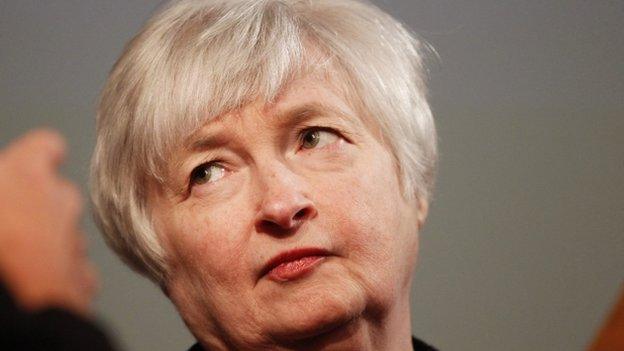When the Federal Reserve last raised US interest rates
- Published
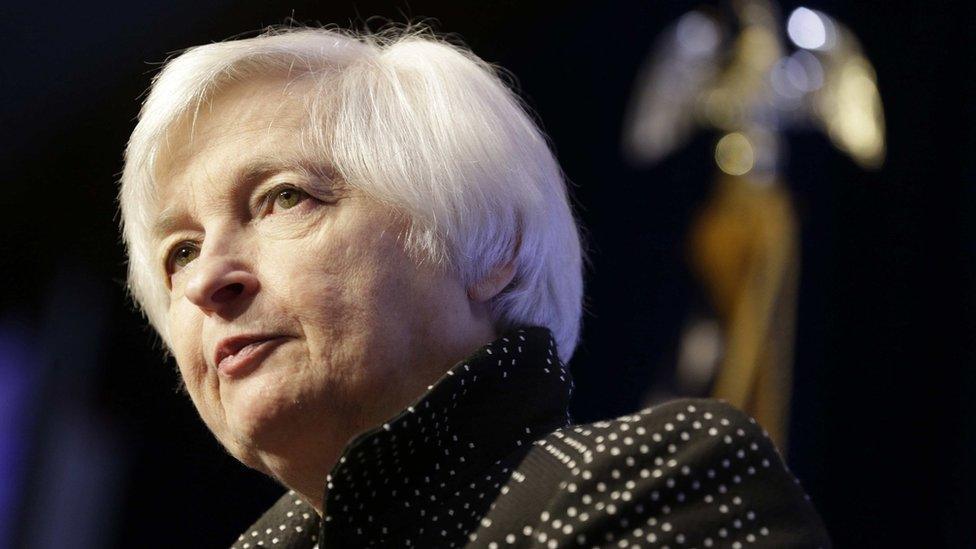
Janet Yellen voted for a US rate rise the last time it happened
So will the Federal Reserve finally do it? Certainly the financial markets think that it will raise US interest rates on 16 December.
You could be forgiven for having forgotten what that's like.
It's not quite a whole decade since they last did it, but not that far off it. It was 29 June 2006.
Some things haven't changed. One of the people voting for the rate rise back then was Janet Yellen. She had a vote as the president of the Federal Reserve Bank of San Francisco. She still has a vote, but now she is in charge, chairing the Fed's board of governors.
Her recent comments strongly suggest she will vote for a rate rise this time too.
But many things are different.
Back then, inflation was a more immediate concern. The Fed's statement explaining the rate rise said, external: "Readings on core inflation have been elevated in recent months."
Today, inflation readings are not elevated. Still, the possibility that they eventually might be is the fundamental concern driving the Fed to want to start the gradual return to more normal levels of interest rates.
In other words, the Fed's basic underlying mission is the same as it was then.
Fast forward
The wider world, though, has changed dramatically in some ways.
What has changed since last Fed rise?
If the Fed does raise rates, I might well first get the news on my iPhone.
With the last rate rise, I couldn't have: they didn't exist. Apple's iPhone was launched the following year.
Now I am not saying that I received the news on a piece of paper jammed into a cleft stick, in the manner of Evelyn Waugh's journalistic comedy Scoop.
I was probably sitting at my desk in Bush House, the old BBC World Service HQ, waiting for Reuters or the Associated Press to report on the news agency feeds we get in the BBC's computer system.
I say "probably" because I can't remember the occasion. Believe it or not, I do sometimes think about things other than the Fed's next move. The European Central Bank's next move, for example.
Now the spread of the smartphone means that the options for doing things on the move are so much more extensive.
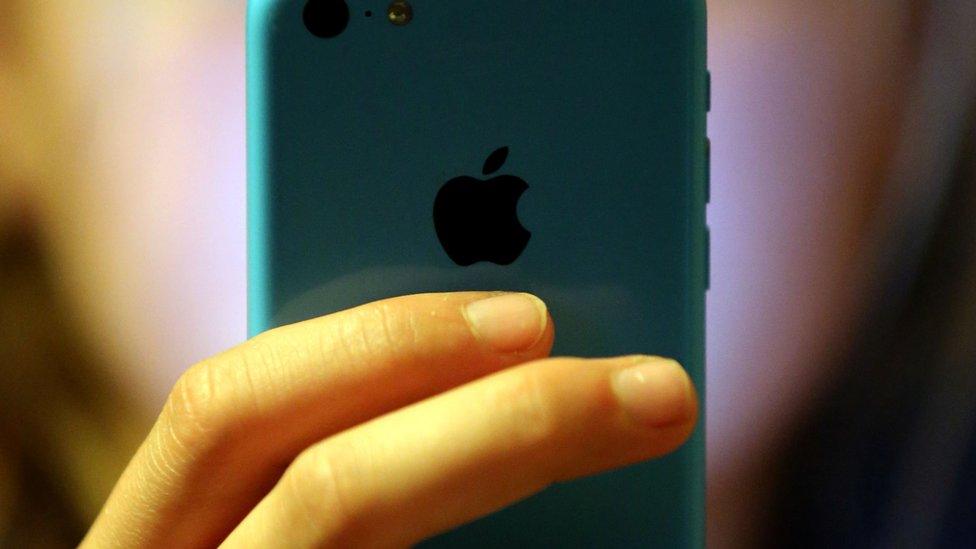
Apple's iPhone has been around since 2007, but it seems longer
To stay with the Fed decision, this time it would be possible for me to sit on London's Hampstead Heath, get the news, write a little analysis for these pages, write and file a scripted report for World Service Radio and even go on air live.
I won't do it like that, I admit. Some elements in that list of tasks would be rather precarious on a phone. But they would be possible.
In 2007 Apple was breaking into a market for handsets dominated by Nokia. Where are they now? Making network equipment.
The brand, or a slightly different grammatical version of it, survives in consumer goods in the form of Nokian: rubber boots and tyres. The electronics business went its separate way in the 1980s.
Apple today is big in wearable technology. I suppose you could say the same of Nokia(n). It's a technology that will keep your feet dry.
Those aren't the only lifestyle changes we've seen in the past decade, of course. But a good many of them do revolve around the ubiquity of smartphones: I could monitor my cycle to work with a phone app. I usually don't because it would be depressing. I am getting slower. You can watch TV on your phone (though best avoided while cycling). You can do what it used to take a whole TV crew to do: film, edit and publish a video just with your phone. People even make a living doing just that. I don't. The BBC is big enough for the division of labour to survive for now. But my wife sometimes does it for her newspaper's website.
Facing the music
Of course, there have also been some truly fundamental economic changes since that previous rate rise. I'll mention two: the financial crisis and the continued rise of China.

Lily Allen was number one in the UK charts when the US last raised rates
The 2006 rate rise was about a year before the onset of the crisis. Since then, some big American names in the financial world have crashed (Lehman, Bear Stearns).
The biggest all got some government cash, even JP Morgan and Goldman Sachs, though the money has been repaid. Is the financial sector as it is today chastened by the experience? Probably not, though it is certainly more regulated. And people's perceptions of bankers have taken a sharp knock.
A related change is that the eurozone looks a lot less confident now. It is no longer really an "Ode to Joy" (a Beethoven tune that serves as the EU's anthem and accompanied the euro's launch festivities). More a sense of relief that the eurozone came through the crisis, badly bruised, but (so far) more or less in one piece.
Some theories of the financial crisis blame China for flooding the world with its foreign exchange reserves, which drove down interest rates in many countries.
That hasn't impeded China's rise of course. The factory of the world has grown to be the world's second largest economy, or even number one on one measure.
In 2006 commodity prices were booming, with rising demand from Chinese industry playing a key role. Now China's economic slowdown is one of the key factors that has sent commodity prices tumbling.
What else might illustrate how different our lives were 9 years ago?
Somebody in this office suggested I should look at what was number one in the charts then and now. Well, in the UK charts it was Smile by Lily Allen and as I write, it is Love Yourself by Justin Bieber.
Does this reveal some profound cultural change? I have not knowingly heard either of these, so I have no idea. But if you think the contrast is illuminating, then great.
All I can say is: "Who are the Beetles?" Were they around in 2006? (Ed: No they weren't. And it's the Beatles you idiot. You're fired. Copyright Private Eye)
- Published15 December 2015
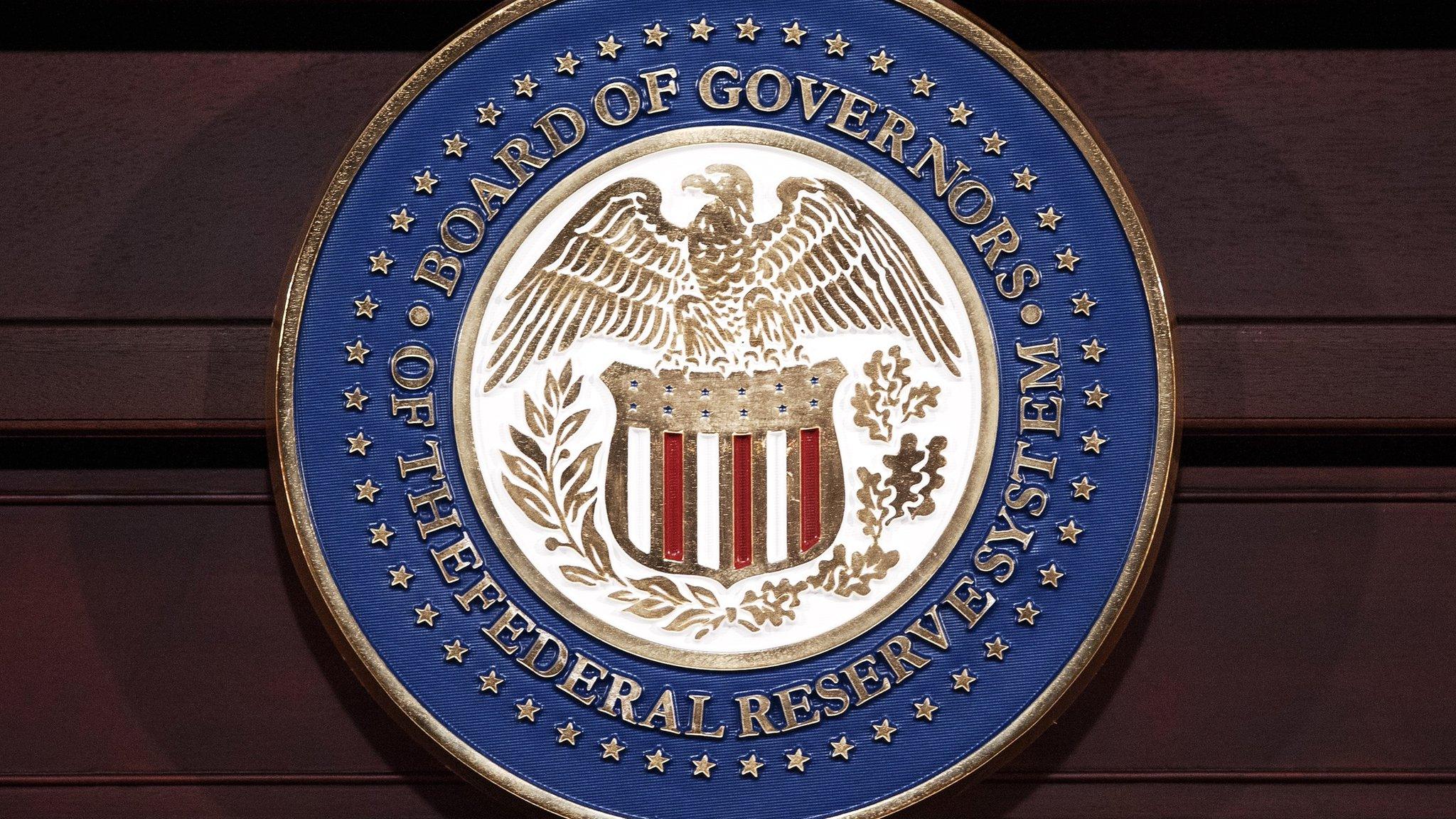
- Published3 December 2015
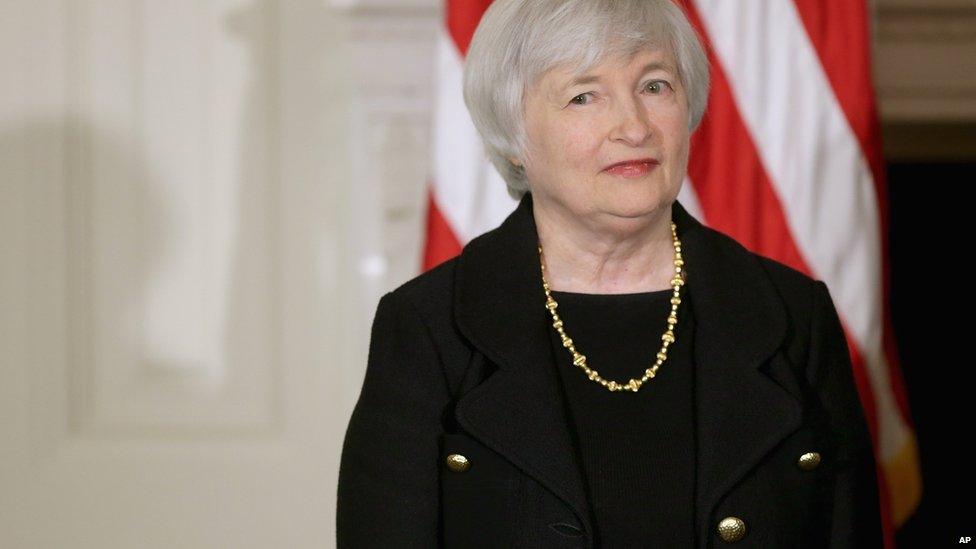
- Published24 November 2015
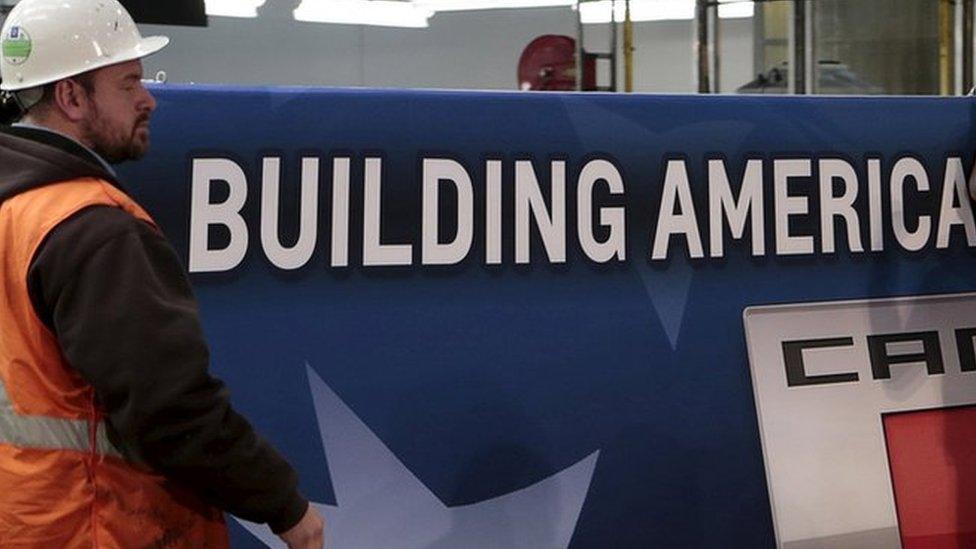
- Published3 February 2014
